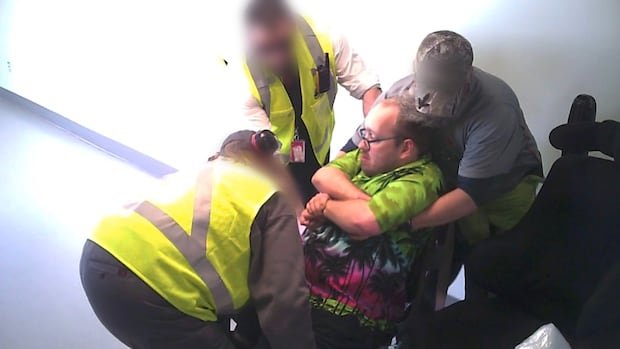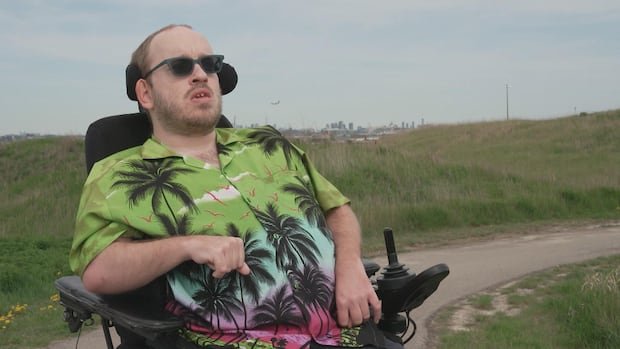Paralympian Brock Richardson landed in Fredericton already knowing that a piece of equipment he requested before the trip would not be there to help move him from his seat to his wheelchair.
But he didn’t expect an Air Canada staff member would also attempt to separate him from the person responsible for his care.
Richardson, who has cerebral palsy, was told that his support person would have to get off the plane before employees would lift him onto a narrow wheelchair that would take him down the aisle of the plane.
It’s a request that Richardson said “unsettled” him.
“I’ve never been asked for my attendant to leave the aircraft,” Richardson told the Air Canada employee. “Never. And I’m not comfortable with that at all.”
Months after Air Canada committed to immediate action to improve the experience of customers with disabilities, a Marketplace team went undercover with Richardson in May to see whether the airline had followed through on its promises from Nov. 9, 2023.
The pledges came after a series of unsafe and demeaning incidents involving customers who use wheelchairs and a Marketplace investigation that uncovered serious issues with staff training, among other shortfallings.
Air Canada said it would invest in equipment — like the lift Richardson requested, board customers who require staff assistance to get to their seat before anyone else and to seat them at the front of the cabin they book. And it also promised enhanced training for employees.
But Marketplace‘s hidden cameras documented the airline falling short of multiple announced improvements during a round-trip flight from Toronto to Fredericton it paid for Richardson to take for the investigation.
Air Canada stalls on boarding, seating
For passengers like Richardson, air travel can be accompanied by considerable risk and discomfort. Passengers who use wheelchairs have been injured during transfers to and from their seats and Marketplace heard from several people who said their wheelchairs were damaged. .
Once Richardson is in his plane seat, he can’t get to the bathroom so he has to manage how much he eats and drinks when he’s travelling.
Not all airports have a lift used to transfer a passenger with disabilities between their wheelchair and plane seat. And that can mean someone has to rely on staff to physically pick them up and place them on a narrower wheelchair and then again to get onto their seat. It can be uncomfortable, Brock Richardson says.
“I enjoy just the atmosphere of travelling in general,” he said, noting it’s something he did often as a boccia player. “I just enjoy being [in] different places.”
It’s getting there that can be the difficulty, he said.
Last year, Air Canada committed to “consistently” boarding customers who need help transferring from a wheelchair to a seat “before all other customers,” saying they would be seated “at the front of the cabin they booked.”
And though Richardson needed that extra assistance, Marketplace documented three people boarding before him on the return flight to Toronto.
For Richardson, boarding before other passengers isn’t a perk — it’s a matter of dignity.
“There is a lot of vulnerability that goes on when you’re being transferred. And I didn’t sign up for that to be amongst the public.”
Air Canada’s vice president in charge of customer experience told Marketplace that Richardson’s case was an exception.
“We were requested by authorities to board a number of other customers before and we are following the instruction,” said Tom Stevens, adding that the airline is confident the policy is “being delivered correctly.”
But boarding issues continued for Richardson; when he was transferred to his seat, he found himself in rows 20 and 21 on his two flights — despite the Air Canada promise that those needing lift assistance would sit at the front of the cabin they booked.
When Marketplace asked the airline about the broken promise, Stevens replied that because the booking was “relatively recent … the forward rows [had] already sold.”
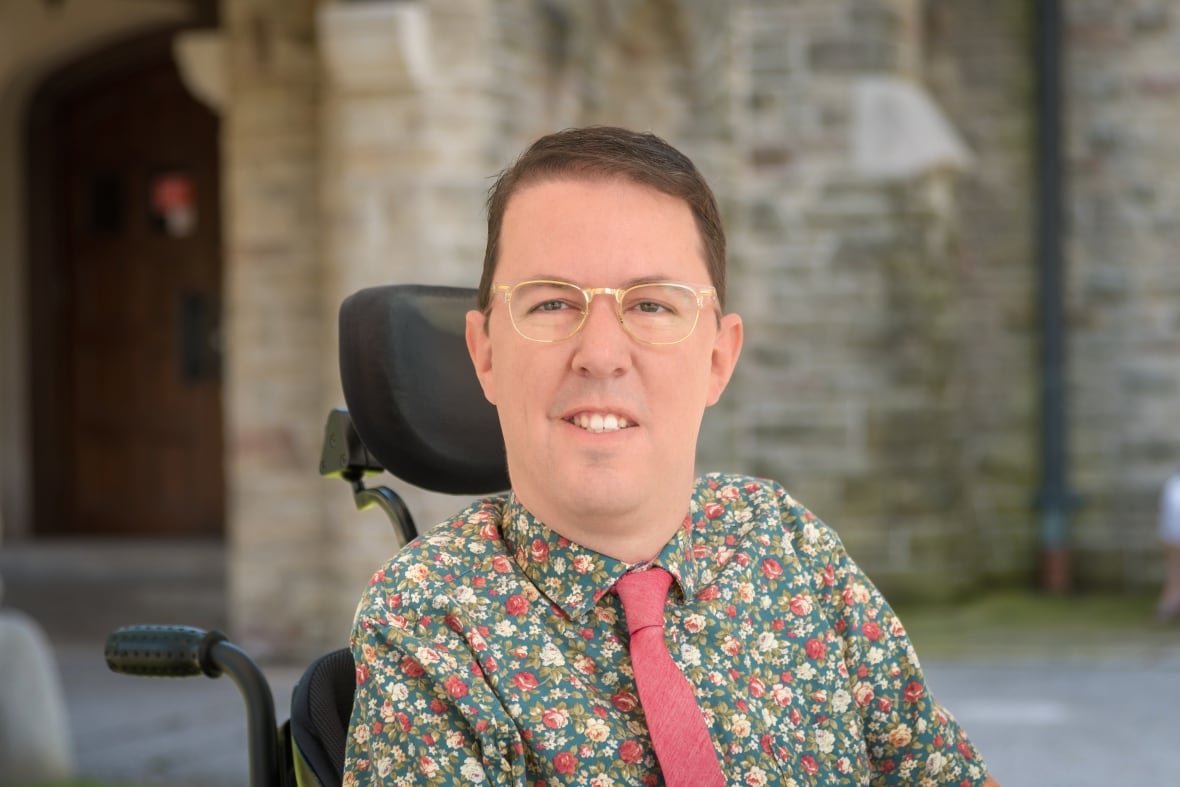
If that’s how the policy is applied, it leaves too much to chance, said Jeff Preston, an accessibility advocate and associate professor of disability studies at King’s University College — and it doesn’t serve the needs of people with disabilities.
Those should be prioritized, he said.
“If you go to the movie theatre, for instance, there are spots that are designated for people with disabilities,” he said. “If they don’t need it, then those seats are able to open up.”
‘You’ve taken my choice away’
Richardson isn’t alone in not having a lift available at his destination airport. The same thing happened to Alessia Di Virgilio in Charlottetown, the first time Marketplace tested Air Canada’s accessibility in August 2023.
Brock says the lift equipment is more comfortable; a sling can transfer a passenger directly from their wheelchair to their seat. Without that equipment, staff have to pick someone up twice — first to transfer them from their wheelchair to a narrower aisle chair and then again to place them on the plane seat.
So when Richardson was told there would be no lift available in Fredericton when he booked the trip a week before departure, the athlete said he felt the airline had taken away his autonomy in deciding how to be safely transferred onto the plane.
“The first thing I thought of was, well, you’ve taken my choice away,” he said. “You’ve taken my ability to make that decision. You’ve taken my ability to be comfortable.”
Though a lift was not available for Richardson, Air Canada had ordered 27 lifts from Australia in December 2023 and they were expected to start arriving in June, Stevens said last May. An update from the airline in October said those lifts have since been delivered, including one in Fredericton.
“At present we have our own lifts, or access to third-party lifts, at all but 14 of the 50 stations we currently serve in Canada,” wrote Air Canada spokesperson Peter Fitzpatrick in an email. He said the airline is considering buying more lifts for the remaining 14 locations or arranging for a shared purchase with other airlines or the airports themselves.
In May, after Richardson’s flight, Marketplace asked then-Transport Minister Pablo Rodriguez about the prospect of a federal mandate to ensure that lifts are available at every airport.
“We’re considering all the options because we all have to do better,” he said in response.
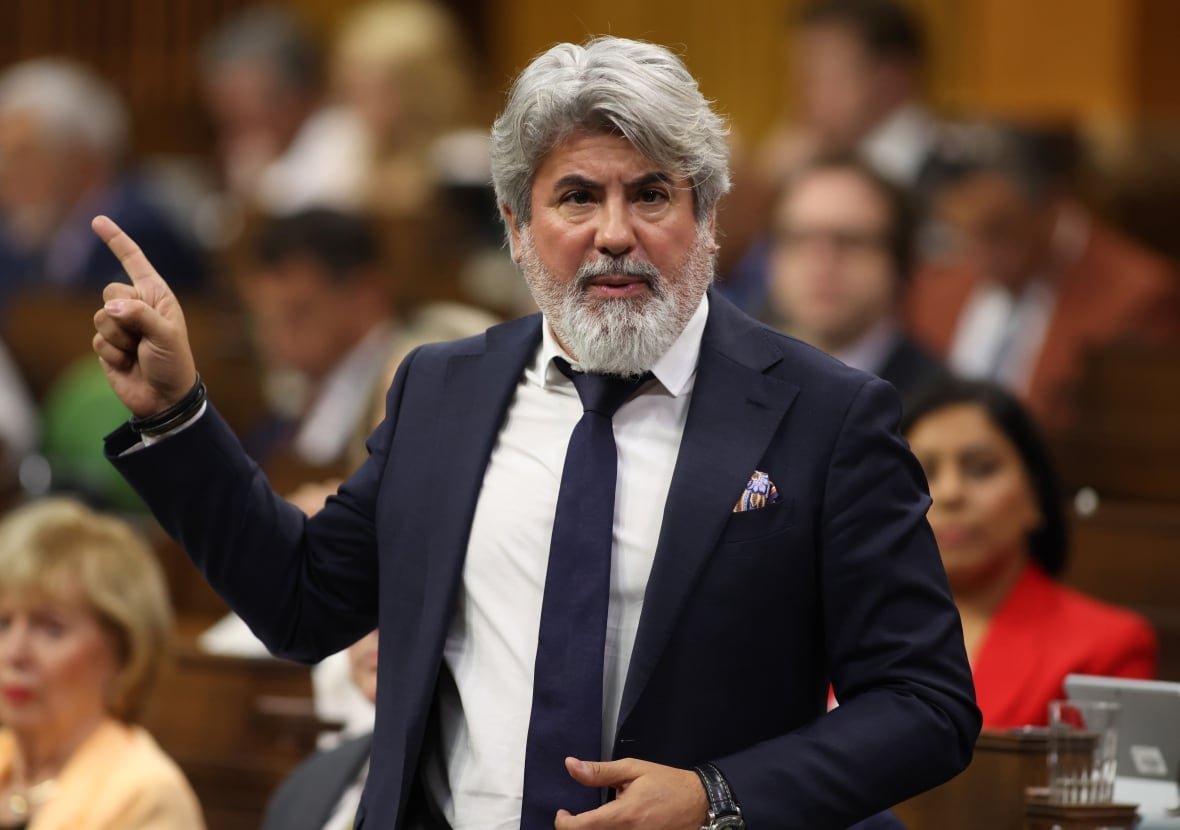
Confrontation with staff raises questions about training
Richardson is still waiting for answers about why his support person, Kathrine Vatcher, was told to leave the plane while the transfer team moved him from his seat to an aisle chair in Fredericton.
“We got it [the direction] from management not too long ago,” an Air Canada employee told the athlete on the plane, adding that Vatcher was being asked to leave because she wasn’t going to physically assist during the transfer.
Richardson and Vatcher pushed back repeatedly against the staff member; the stalemate broke when the transfer team arrived and allowed Vatcher to stay but asked her to move back.
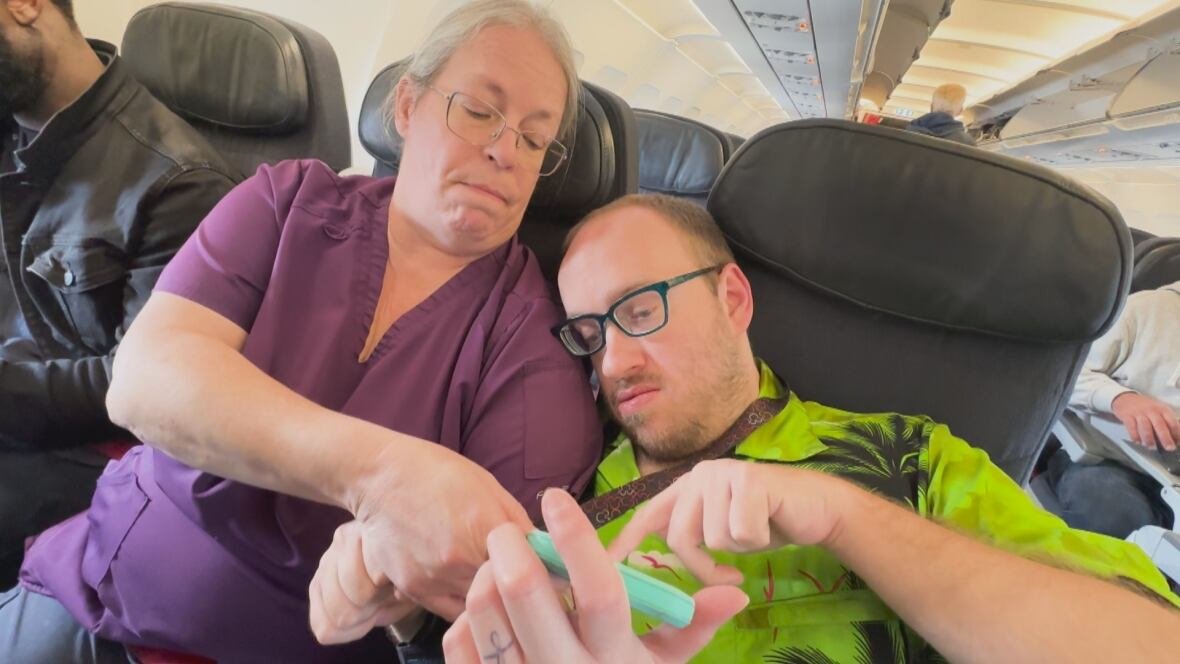
Stevens said in May that Air Canada would investigate the incident.
“The main thing that we’re trying to do is ensure that the lift for the customer is in a safe and controlled way,” he said. “On some aircraft that might mean that we need more space.”
Since that interview, Marketplace has followed up with Air Canada twice to find out whether the request was a company policy, but the team has yet to receive an answer on this issue.
Instead, the incident raised more questions about the effectiveness of the promise of enhanced training to “improve all aspects of employee interactions with customers with disabilities.”
“I’m baffled,” said Preston, the associate professor of disability studies. “There are probably a lot of things that this [support] person might be needed for in a possibly very urgent time frame. And you shouldn’t be separating people.”
When Brock Richardson lands at Fredericton International Airport, an Air Canada staff member boards the plane and says his support person can’t stay for the transfer from his seat to an aisle chair, because she won’t be physically assisting. Note: This video has been updated to correct the location.
Concerns about privacy and consent
Richardson told Marketplace he felt violated after one of the team’s journalists observed an Air Canada manager in Toronto appearing to record his transfer from his wheelchair to the lift without his consent.
Initially, Air Canada would not confirm whether Richardson had been recorded, saying only that it might “take photos occasionally” of a wheelchair “to ensure that there’s no damage once that’s being stowed in the cargo hold.” Stevens said the airline would investigate.
After repeated attempts to get clarity, Marketplace received an email in October saying “only the empty chair was photographed” for tracking and quality control.
The airline contacted Richardson for feedback and expressed regret about his experience. It also offered him a $1,000 coupon as a “gesture of goodwill” and sent him the pictures of his empty wheelchair at his request.
The new transport minister responds
Shortly after the flight, Marketplace spoke to then-Transport Minister Pablo Rodriguez at the first National Air Accessibility Summit in Ottawa.
“Collectively, we have to do better,” he said then, after hearing about Richardson’s experience.
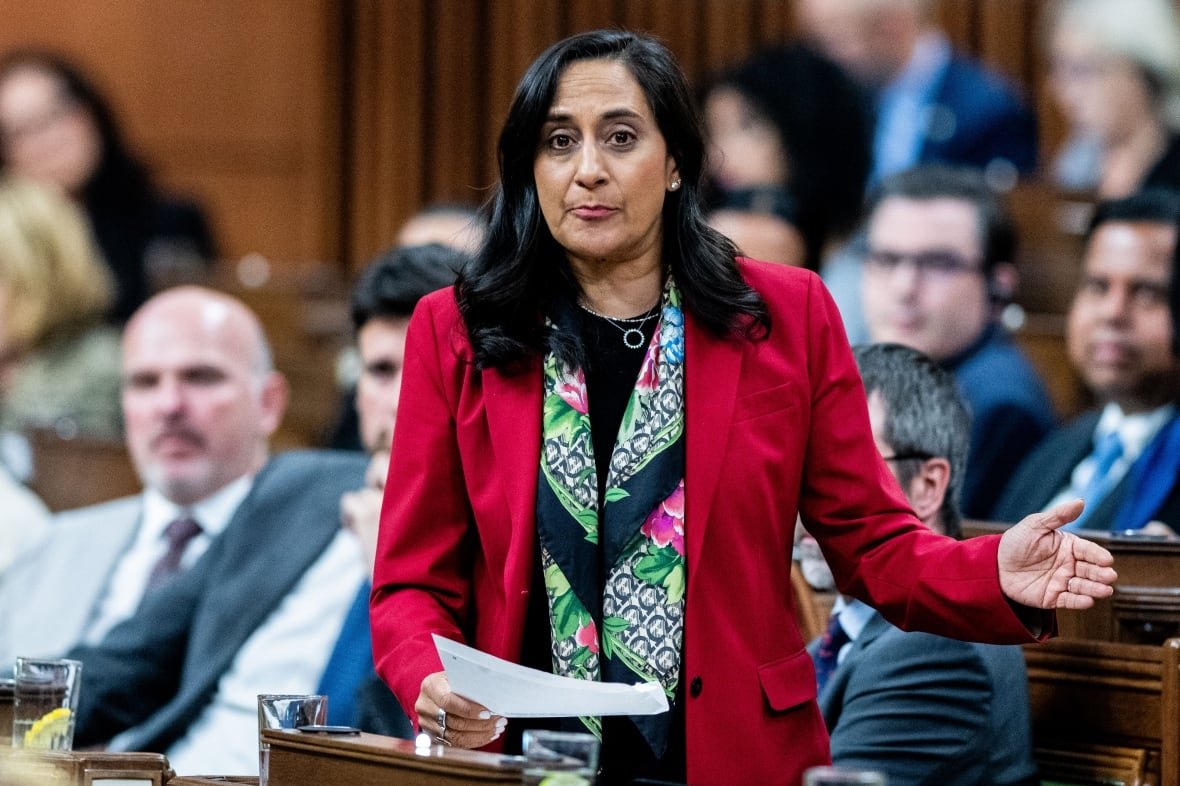
Anita Anand, who was appointed to the portfolio in September, said in a statement that she’s working with Canadian airlines to make sure “improvements are being made and that the rights of passengers with disabilities are upheld.”
“Accessible air travel isn’t optional,” the statement said. “It’s essential, and we expect all airlines to do their part.”
She did not, however, comment on whether a federal mandate could be expected regarding access to lifts.
Richardson said there’s a lot of room for improvement.
“We need to see more moving forward,” he said. “I think we now know that we need to be better as a whole community.”


